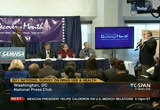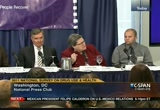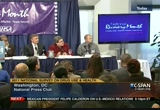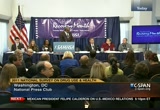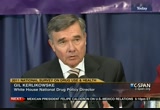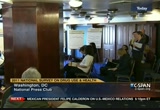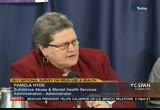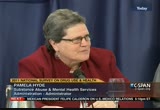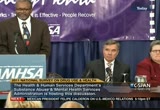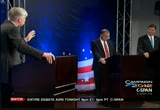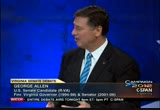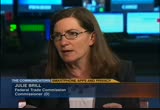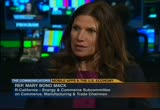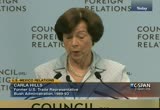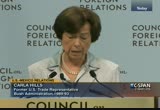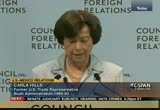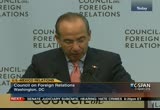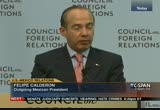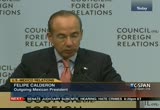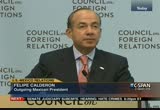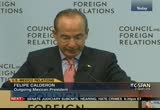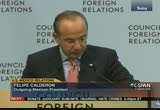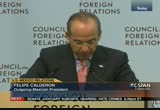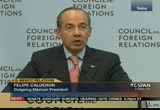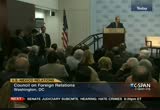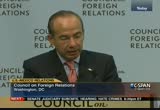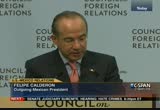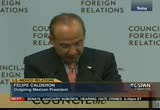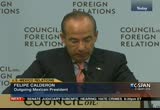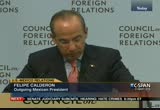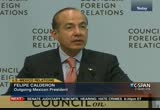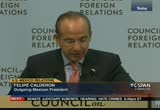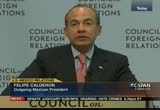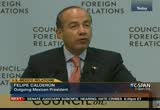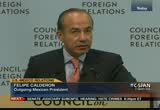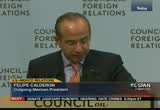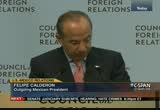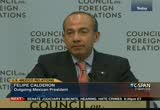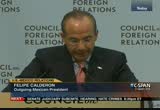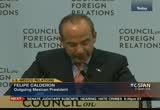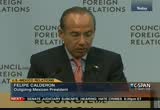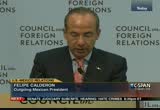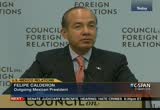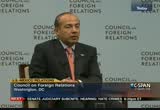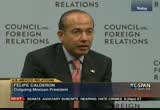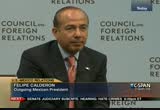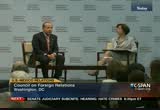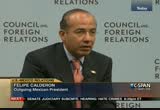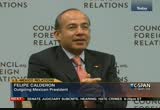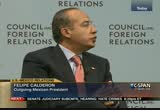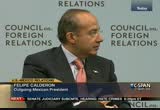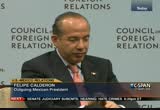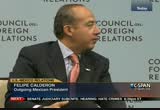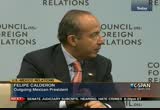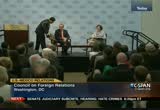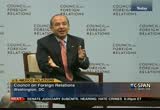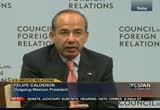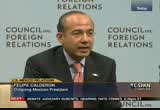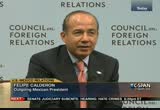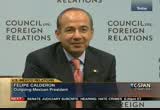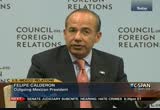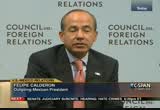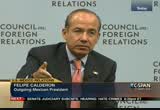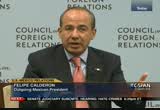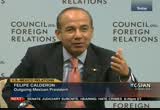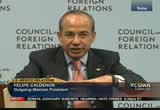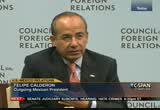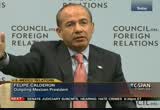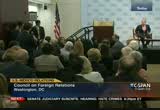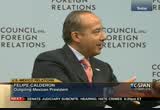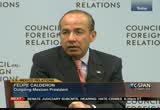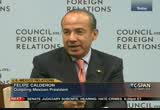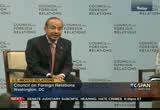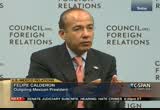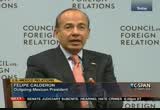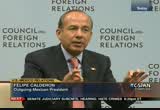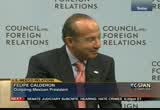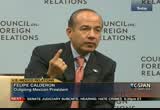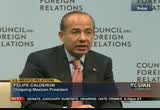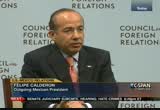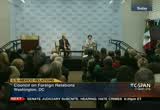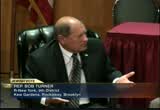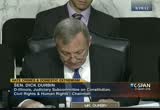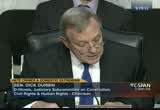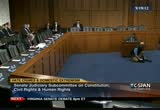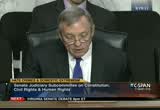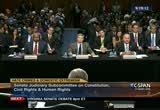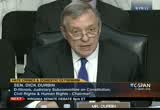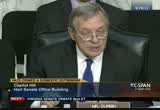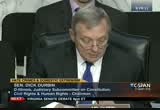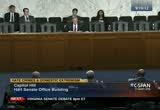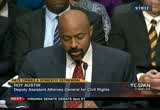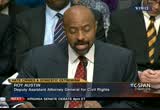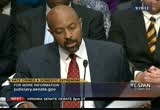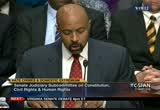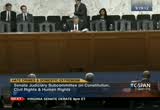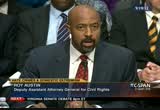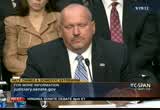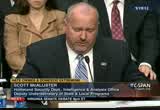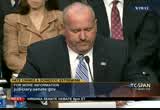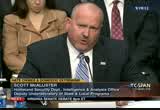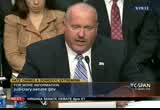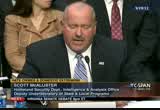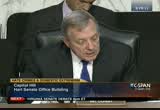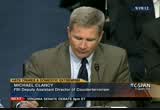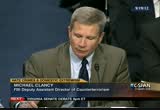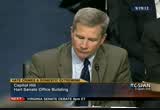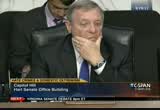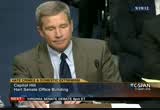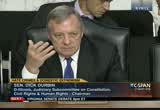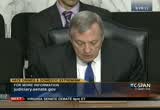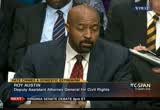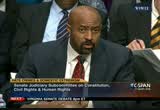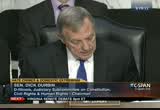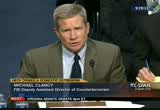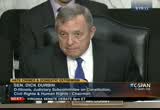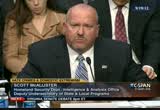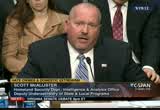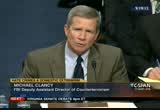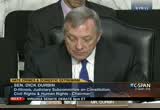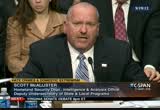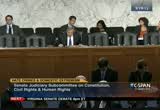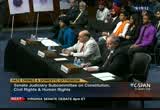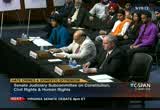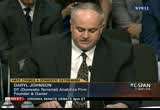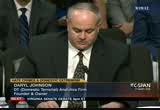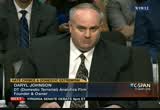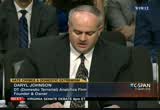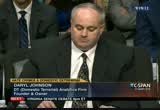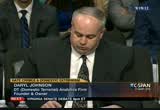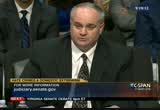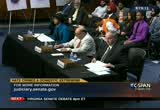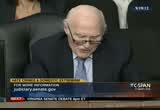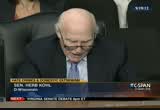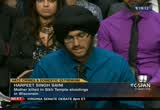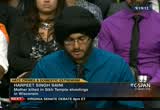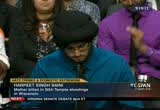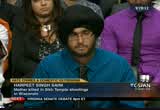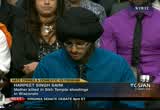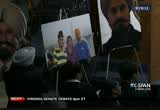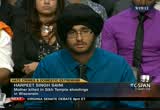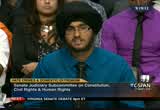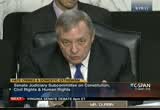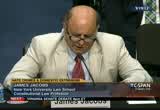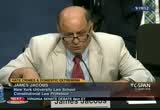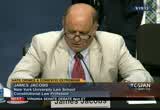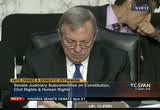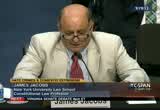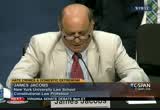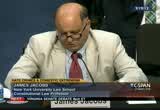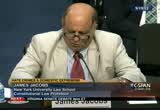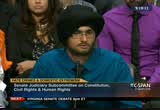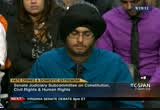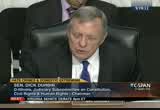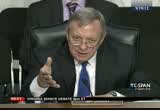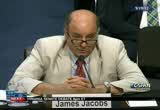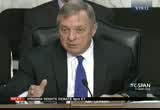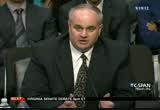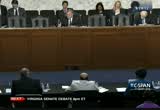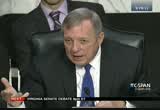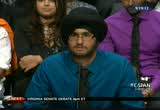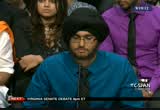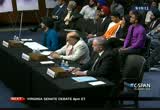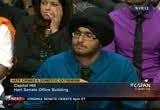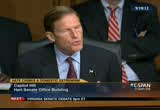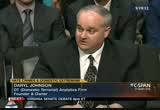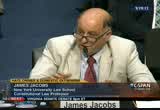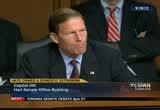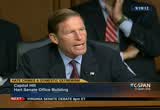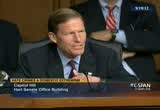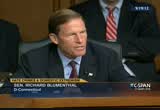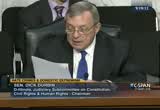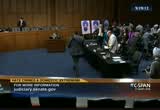tv U.S. House of Representatives CSPAN September 24, 2012 5:00pm-8:00pm EDT
5:00 pm
i guess my thought process, somehow the for the state has discriminated against recovery. like they did in virginia. that really is the nature of my heart. by doing so, we could really reduce recidivism and increase recovery. the power of recovery is incredible. to block out the recovery people from those services is insane to me. like said, the state is not going to change. but the federal not going to change. but the federal government, if you could just say, we've got to smelt -- spent a little bit of money on that instead of just building crocker sees. that is the general thought process. >> -- building bureaucracies. that is the general thought process. >> as far as spending in the
5:01 pm
block grant programs, we have some spending that is specific around recovery services. we are doing a new initiative with hud and some of our partners at a cms and trying to put together the services and support and housing it would need to maintain housing. i can talk about that for a long time. i agree with you that we need to do more recovery support services. we need to incorporate that into our grant making program to the extent that we can. >> any questions from the press? >> this question is for pamela hide again. can you elaborate what you -- with what you are doing with the cms? you mentioned what you were doing with hud and with the mass. what is cms's role? >> we are looking at services
5:02 pm
that can be funded by medicaid and the types of services that cannot. we might either use samsa dollars or other federal -- federal dollars or state and local dollars. and then with hud, the housing, etc.. the three agencies are working together to think about how we can put together vouchers, medicaid funding, and non- medicaid funding to support a person in recovery in getting and maintaining housing. >> other media inquiries? the far back. >> from clinical psychiatry news. i had a question about synthetic drugs. definitely a concern in the last two or three years.
5:03 pm
where do they stand as far as concerns go? >> joe, do you want to comment on synthetic drugs? >> we do not have the data of the synthetic drugs. but what we are doing is monitoring through state authorities the presence of the synthetic drugs. mr. kolokowski has been active in working with the legal authorities on synthetic drugs. >> most recently in the minds during the future survey, it actually got the researchers who have done this for quite a long time by surprise. the increase of synthetic drug experimentation by young people was very concerned. although, more course as the surveys go on.
5:04 pm
not only the synthetic drugs, but the bath salts issue that has come up. the point of control center has provided that. the treatment center has provided a lot of information. and we your press reports from around the country. we were glad to see many states passed laws to ban substances that were used to produce the synthetic drugs. but the most important and most helpful was that recently, congress passed and the president signed a synthetic .rug banne that will be helping to stop that level of transportation. >> any other media questions? any questions from other than the media? >> alexis guyer hornet with the american society of addiction and medicine.
5:05 pm
i want to thank all of the speakers that spoke this morning and i want to thank samhsa for its efforts around the country. this is around the trend that we are seeing with the state and medical facilities for assistant there be there. i wonder if you could comment on what federal agencies could do to make sure that folks in the states who need treatment can get the access that they need. thank you. >> i think the issue of medicaid assisted treatment is one that is in a transition is a fair way to say it. for some people, it has been hard to understand addiction as a disease, and therefore, it has been hard to understand their role that medication may play in
5:06 pm
treating a disease. there are additional opportunities for using medicaid assisted treatment in certain circumstances. we are certainly supportive of that process where appropriate. we're also interested in working with courts and judges and other individuals who have a responsibility for, or who have a role in helping people get into treatment in what their role is and supporting appropriate kinds of treatment regarding the individual's needs, or based on the individual's needs. we support medication assisted treatment. we anticipate, frankly, that there will be additional opportunities for medicaid assisted -- medication assisted treatment. not sure if i am terribly answering your question, but this is clearly something that -- totally answering your
5:07 pm
question, but this is clearly something that we are doing it -- more research with. as it has come out, people have to get used to that issue. the bottom line is there is still addiction as disease and some people do not get that yet. they have a hard time with that concept. gregg's early on, the statement about the pathway to recovery, that there are many, there is no pathway to assisted therapy. i have made a number of visits to vivitrol centers and to methadone clinics. and we would help to -- we would hope you think that's those are the types of recovery units that would lead to absences. -- abstinence. and we hope to give information about treatment to the people that access those systems.
5:08 pm
>> all right, are there any other questions? from either the press or the non-price? -- non-press? in that case, this concludes the panelists. -- this concludes this event. i want to thank all of the panelists. and i want to thank you all for coming. [captioning performed by national captioning institute] [captions copyright national cable satellite corp. 2012] >> former mexican president and former senator george allen faced each other wednesday. >> the standard bearer of the republican party said that 447% of americans see themselves as
5:09 pm
victims. i ask you pointedly, do you share that vision of america and what specifically would you do to deal with that 47%? gregg's as i stated in the beginning, david, the best social program of all is a job. how you provide more opportunities for jobs -- >> do you think the country sees themselves as victims? >> i look very positively -- >> would you disagree with governor romney on this point? gregg's i have my own point of view. i believe the people of america still believe in the american dream. our responsibility is to make sure that this is a country where everyone has equal opportunity to compete and to succeed and pursue their dreams. i will expand on this later in our debate, i suppose, but if you look at the records, who has created more opportunities? i mentioned welfare reform. those are folks who were down
5:10 pm
and out and temporarily needed help. i want to help. even folks who are disabled want to work. that is one of the great attributes and characteristics of all americans. they do not look at themselves as victims. they want a government that sees there -- to reflect their values and gives them an opportunity to be able model. >> give an opportunity to have a bottle. >> i do not think the question of whether you agree or disagree with governor romney's statements are hard. they were divisive comments and -- >> this debate is courtesy of washington d.c. to see the debate at 8:00 p.m. eastern. >> we are trying to encourage developers about what they need
5:11 pm
to make this app relatable. it will id track the consumer. it can aggregate the consumer as she passes through the world all day, and for all days. this information, what information is really needed to make the a.d.p. functional. who else should see it. in other words, should access to be limited. how long do you need to retain it. and when you're done with it, what would you do with it? >> the work force, they are still looking for more and more people to develop this industry. basically, that is the biggest problem. the fears that people have are somehow that in washington we will come in and tell everybody how to do business or not to do business. the only real fear was workforce
5:12 pm
issues. the rest of it is nothing but optimism. >> smart phone apps and the u.s. economy. tonight at 8:00 p.m. eastern on c-span2. now mexican president felipe calderon on obama's policy to avoid deportation. he also talked about drug- trafficking and the sale of weapons across the border. this is about an hour and 10 minutes. >> welcome to this council on foreign relations meeting. we are so very honored to have the president of mexico, felipe calderon. and before we get started, let me say that this meeting is on the record and is being telecommunicated to new york by video conference. we thank you. turn off all wireless devices, phones, blackberries -- not to
5:13 pm
vibrate, but really off. and as is customary, preserve the map -- observe the maximum time for our conversation -- to preserve the maximum time for our conversation with the president, our introduction will be diplomatically short. you have his resume and you were given the papers as you entered the hall. let me simply say that president calderon, the youngest of five boys, earned a bachelor's degree of law, a master's degree in economics, and a master's degree in public administration at the john kennedy school at harvard university. he became a supporter of the party -- of the national action party early on, becoming the leader of the youth organization in the late 90's, he became its
5:14 pm
president. and before the 2006 election as the president of mexico, he had served in that chamber of deputies and as the secretary of energy. he will leave office in december, remembered as the president who built the most universities -- 96 -- the 16,000 kilometers of highways, the bridge that connects mexico's two coasts, providing faster access and therefore, more efficient trade, and the passage of the first employee an act, which provides incentives for companies to hire those just entering the work force. but he also faced the daunting challenge of the violence spawned by the drug cartels, that left 50,000 dead. polls taken just this last august showed his approval
5:15 pm
rating above 64%. we are so honored to have the president of mexico here with us. mr. president, welcome you to the podium and we look forward to your remarks. [applause] >> good morning. thank you for your words. it is an honor to be here today. at the council of foreign relations. for more than 90 years, this institution has been at the forefront of analysis to understand the challenges and policy choices facing the u.s. and the world. six years ago in my first informal address cannot i told the mexican people that it was
5:16 pm
possible to changs mexico. i said we could turn mexico into a more prosperous nation with a dynamic and competitive economy. i said that we could be a fair society with more opportunities for everyone. i was convinced and i am now, that we could transform mexico into a safer nation with a strong law. i can tell you today that we have made great strides to putting mexico on track into making this vision a reality. i would like to share some reflections on how we have transformed mexico into a stronger nation and a better neighbor. let me start by talking about the transformation of the mexican economy. as you know, we had to confront the worst global economic crisis
5:17 pm
in living memory. mexico was particularly vulnerable to this shot because the ties to the american economy and the consumption in this economy were at the epicenter of the crisis three years ago. fortunately, we took the necessary measures to prevent this crisis from becoming a major catastrophe. in doing so, we were guided by three basic concepts. financial discipline, economic freedom, and increased competitiveness. and this strategy has paid off for the country. first, mexico has preserved sound economic fundamentals. many countries put in place the cyclical measures to prevent their economies from financial
5:18 pm
turmoil. we did as well. in mexico, we implemented counter cyclical measures to save jobs and keep our infrastructure afloat. we created specific programs to save jobs in export-oriented industries. we reached an agreement with the unions and the companies in the sense that as long as the worker excepts one-third less on his salary, the company will pay one-third of his salary, and the federal government accepted to pay in the third part of the salary. in that way, we saved more than 500,000 jobs right in the middle of the crisis in export oriented industries. we disk -- we decreased government transfers to the
5:19 pm
poor and increased jobs programs. and in doing so, we created another half a million temporary works for the people. and of course, all of this cost a lot of money. our public deficit reached levels of almost 4% of gdp including in 2010. we understand that today's earnings or tomorrow taxes. that is why expanding public of the sid to stimulate the economy is our one sure deal. we understood that. once you do it, you have to take measures to rebuild your financial structures. the biggest difference during the crisis was to forget that you can use public deficit like this once, but if you try to use
5:20 pm
it on a regular basis, you will face sooner or later tremendous problems financing such deficit. and that is exactly what is happening with several economies in europe right now. that is why we put in place and exit as the strategy to regain the fiscal balance quickly. this strategy included several paid in full measures -- painful measures. in reducing infrastructure activities, promoting reforms, and granting deregulation programs. we also set down a very efficient energy country -- company, which saved the government more than $5 billion a year in subsidies. thanks to fiscal discipline, public debt is at historically low levels and we have
5:21 pm
maintained the lowest inflation levels of the past seven decades. another important factor behind mexico's stability is our financial sector. while in the u.s., the crisis started in the financial markets and in the banking sector's, the financial sector in mexico was not part of a problem but part of the solution. thanks to the improvement in regulations, mexican banks have a capitalization index of 16%, almost double the recommendation of basil, and well above that
5:22 pm
of china, india, or even the u.s. second, we maintained our strong commitment to free trade. this is easier said than done. i want you to remember the g-20 summit. one of the usual paros in the final declaration always says that all countries -- paragraphs in the final declaration always says that all countries have to refrain from adopting protective measures. all the countries used to say, we reject perfectionism. and time and again, 15 out of the 20 members put such measures into effect in the following days. only mexico started to reduce tide's right in the middle of the crisis. mexico, on the contrary, has reduced dies from the 12% to 4%
5:23 pm
on average, and has reduced the agreement with colombia, chile, and peru. and recently, mexico joined the partnership that would give mexico trade the biggest coups since nafta came into effect. -- the biggest boost since nafta came into effect. third, we work hard to build our companies. despite the crisis, we boosted investment in infrastructure. 20,000 kilometers of road we have bill " -- built or repaired. it is equal in distance from the north to south poles. we also build 96 universities
5:24 pm
last year and 140 new public colleges. and we have a higher figure of graduates each year then germinate or canada. -- germany or canada or brussels. today, mexico exports more manufacturing goods that all of the countries of latin america and the caribbean combined. mexico now accounts for almost 13% of u.s. imports of manufactured goods. and in 2005, mexico's share was below 10%. 10 years ago, about 90% of the country's exports went to the u.s..
5:25 pm
last year, that figure fell to 76%. when i took office six years ago, mexico was the ninth largest car exporter to the world. and today, we are the fourth largest court -- car exporter. we buy more u.s. goods than the rest of latin america,, more than japan and china together. indeed, this deep transformation of the mexican economy is of critical importance to the economic success of the u.s. as well. if we want to guarantee our mutual prosperity in the long run, we need to do more. we need to maintain north
5:26 pm
america's competitive edge over other regions. and the key to get there is more integration, not less. nafta was a very important step, but our economies must work to deepen our ties further and build on these foundations. second, the transformation that is occurring in mexico, we are becoming a middle-class nation. of course, it does not mean that we have ended poverty once and for all. what it means is that the average mexican family now has a much better quality of life than it did a decade ago. according to a study, in the last year, mexican families have
5:27 pm
improve their access to housing, cars, durable-goods such as home appliances and computers, health and education services, and entertainment, all of which are staples of the global middle- class. let me give you, for example, how public policies have helped to this end. first, universal health coverage. access to health services for everyone from the government is a fundamental human right. it is why we made an unprecedented commitment to improve health care that has resulted in historical achievement. in doing so, we have built more than 1000 new hospitals or clinics and rebuild more than
5:28 pm
two dozen more. second, expanded educational opportunities. today for the first time, every child in mexico can attend elementary school. we have expanded university enrollment from 24% to 34% of young people. third, stronger social programs. we have in place strong support programs, which include conditional cash loans to families, and day care centers for working mothers. attended by other mother's in town.
5:29 pm
also, more home ownership. home ownership is a measuring stick of economic performance and of the strength of the middle class. thanks to the culmination of a stable economy, financial systems, and government- supported programs in the last six years, more than 5 million mexican families were able to buy their own house, a record figure. the improvement of living conditions in mexico is having a positive affect in the continent. for instance, according to the pugh hispanic center analysis, net migration from mexico to the u.s. has steadily decreased in recent years. and finally, probably became a
5:30 pm
net outflow from the u.s. in 2011. this can be explained by increasing border security and the economic downturn in the united states. but there is also a strong argument that better opportunities in mexico have also been a key factor for this phenomenon. for the first time ever, net migration to the u.s. is zero on average. however, we must not forget that immigration is a natural phenomena in for two countries. and has been going on for as long as the united states and mexico have existed. it will continue to happen naturally. our economies are clearly complementary. they're labor-intensive economies and have the ability to supply a capital intensive
5:31 pm
economy such as the u.s. with quality, hard workers. this is what i believe, that the agenda for the future should continue to focus on legal migration in a secure, and orderly what way to secure the u.s. economy and so that mexicans do not have to die while trying to get a job. we can work together to find solutions to these kinds of problems of so that many workers do not live in the shadows of these societies. -- this society. and i want to take the opportunity to once again recognize president obama's position to give some immigrant the opportunity to continue to be a strength and vitality of the united states.
5:32 pm
it is a positive move for both countries that i applaud. now i want to talk to you about a third change initiative to during my time in office. the struggle to consolidate their rule of law in mexico. i know this is an issue that has captured headlines in the u.s. and around the world. it has been one of the main challenges my administration has had to face. over the years, criminal organizations grew in power until they became stronger than the local authorities in several places. in some parts of the country. and even before my term started, violence and crime were major concerns across many cities in mexico. it is why we decided to face the problem head-on, with the full
5:33 pm
force of the state. we implemented comprehensive the studies with three major components. first, to confront the violent criminal organizations and to support other world to and local governments with the deployed .olice and armed forces - this was to give me is about is the time to rebuild their own agencies, especially police course at local level. we have increased the strength of the police by increasing the size of the force to 36,000 officers. there also better trained, better equipped, and better paid. we are helping the states to do the same.
5:34 pm
and we are getting top officers in the federal police. they're passing through a very important and particular set of tests for new members. we are moving to in your transparent -- a more transparent judicial system based on open trial just like the one you have. the u.s. -- you have indian u.s.. third, we are -- in at the u.s. third, we are opening rehabilitation centers for attics and building education and opening community centers. mexico has not been alone in the security efforts. we have found ability in the
5:35 pm
obama administration to focus on these abilities. much more must be done. particularly when it comes to dismantling the financial operations of criminal organizations in the u.s. and reusing american demand for drugs. -- reducing american demand for drugs. we need to have coordinated effort to get to the root of this problem. there is increasing demand for illegal drugs in the u.s. as long as this market continues growing, money will keep flowing to the pockets of the criminals. of course, the best way will be to reduce illicit drug demand in the u.s.
5:36 pm
but frankly speaking, that is not possible. all alternative solutions must be considered to curb the massive profits of criminal organizations. and that includes a market alternatives that prevent them from causing so much violence and death. and there is another problem that has become vital for the security of mexico and many other nations. halting the uncontrolled sale of assault weapons to criminal organizations. with limits -- and limiting access to assault weapons in the u.s. you can see a key correlation between the moment in which the
5:37 pm
assault weapons ban expired here in the u.s. in 2004. that is exactly when the violence in mexico started to grow. it is clear that the more weapons you have available, the more violence you will have in any part of the world. you can see the same phenomena and in africa or central america. and it is even worse with other phenomena and spirit of that is exactly what is happening in many places in the world. during my term, we have seized more than 150,000 guns and weapons. and more than 80% of them were sold in american gun shops. there are nine gunshots in mexico.
5:38 pm
they are each wal-mart in those cities. it is offensive that so many lives are lost because of this business. it is possible to think that the regulation that was done this year in the 1990's, the u.s. weapons ban, this is a problem that has to be addressed if we want to build a safer north america. and finally, i would like to talk about our role in the world. mexico is no longer a spectator in global affairs. we are becoming a nation committed to actively bring solutions for vitality.
5:39 pm
the meeting that mexico hosted in 2010 was a milestone in the global fight against climate change. the agreements reached were an important step toward a more effective climate control legislation, such as the mexican proposal to channel resources toward adaptation and mitigation efforts are on the world. -- are around the world. we're also the first country in latin america to share the g-20 meeting in june. during the leaders' meeting in los gatos -- cabos earlier this year, we rejected the foreigner
5:40 pm
$55 billion to the international monetary fund. moreover, the action plan for growth established commitment to deal with the eurozone crisis toward sustainable economic growth. dear friends and ladies and gentlemen, mexico is working to build a better nation, a stronger, safety -- safer country where the rule of law will prevail. if mexico continues on this path of transformation in the future, it could become the most prosperous nation on this earth. however, no nation can succeed without the support of its strategic partners. the more mexico and the u.s.
5:41 pm
cooperate come out the more we can build a future that both people rightfully demand. both the u.s. and mexico will elect a new presidential terms this year. there is a window of opportunity to reestablish a bilateral relationship. the upcoming elections in mexico have a solid foundation on which to build a stronger future. i wish my successor all the best. if i look at how far we have come, i have never been more confident that mexico and the united states will continue deepening our integration as we face up to the challenges of the 21st century.
5:42 pm
it has been a pleasure to sit here. and of course, i will attend to all of your questions. thank you very much. [applause] >> mr. president, we thank you for those very fine and wholesome remarks. i would like to ask you, in view of your interest in open trade and what you have accomplished, what do you see as the prospects for the united states, mexico, and canada in the trans- pacific partnership? >> the fact is, we must understand how important is for the people and our economies. if we can get this agreement, we
5:43 pm
will connect our economies in the most prosperous region in at least two decades. my concern is there are lots of perplexing spirits i can say that. and i suppose in the united states and mexico, a lot of people believe the more protected you are, the more prosperity will have. it is exactly the other way around. for any politician, it is easier to talk about protection. to talk about borders and barriers than to talk about real freedom in which you and your constituents should compete. it is a serious concern. and the problem is, the
5:44 pm
protectionism is a dog that appears exactly in the middle of the crisis. what will be the chance to move forward? one problem i am seeing is a real advance in this process is delayed one more year. whatever they said in the meeting, there will not be an agreement this year, which is exactly what we were expecting. it is necessary to be -- to regain momentum in local societies to reach the goal we are looking for. probably the political campaign
5:45 pm
hurts mexico, but especially the presidential campaign here could be a temporary obstacle for tpp. once the american citizens decide this important question, i hope that we can move together with common effort in order to get to tpp. hopefully, next year. that measure will open all three economies. >> you mentioned that the north american free trade agreement was fine and that we should build on it. a lot of people have thought that the three governments could do more to create cohesion and competitiveness in the western hemisphere. it is that possible, or are there disputes between us, like maybe the tomato dispute, that hold us back from accomplishing what we might aspire to for creating new opportunities?
5:46 pm
>> there will be a permanent battle, if i can say that. this achievement has historical dimensions, and after several years ago. but i think it is possible if necessary to build upon nafta, and in particular, several things at the same time. one is that we need to improve the infrastructure in the border. there is a lot of bottleneck on both sides. we need to increase the competitiveness of the border itself and the infrastructure will be great. second, we should understand that the nafta could provide a
5:47 pm
lot of opportunity not only for mexican workers, but for american workers and providers. there are circumstances in which we can demonstrate the real advantages in terms of jobs and personal income for any one of these states here. we need to explain to the people what those benefits are. but again, the problem that free trade will fade at any time, and in particular in electoral * is protectionism -- in the electoral times is protectionism. and in the case of the tomato, it seems like this election is so competitive and it looks like the timid or could threaten it. [laughter] it is incredible that i can say
5:48 pm
that, no? [laughter] but let me tell you, the mexican tomato is very good for the american consumer. it is cheaper. and if you are looking for an improved economy, you need to open the world to mexican tomatoes, not the other way around. but of the tomato was going to select the next president, then this country is in problems. [laughter] >> let me ask this last question before i go to the audience. we want to keep protections down, and unfortunately, we are -- they are going up. you mentioned to the unfortunate nature of the tomato problem. what are the protection -- the prospects of opening up energy so that the u.s. and mexico can collaborate on developing a really necessary asset for our economies? >> it is a very important question. i think today, there is a window of opportunity to open up little
5:49 pm
bit the energy sector in mexico. and i say this understanding that it is absolutely necessary. because today, we have a new challenge and new opportunities as well. let me talk to you about systemic. for any public company, its managers are looking for a way in which they can get more benefits with fewer resources, like any other company. and in this particular case, as long as technology is moving ahead -- and now technology is allowing us to get natural gas,
5:50 pm
and in particular, shale gas in a very cheap way, the price of gasoline in the american -- the price of natural gas in the north american region is going down substantially. that is good because it means cheaper energy for any industry in the economy. you can remember 15 or 10 years ago, the price of natural gas was a serious obstacle for the economy. i remember when i was the secretary of energy. the price of natural gas was about $12 or $15. today, the price is probably $2 or $3. it is an amazing opportunity for the region. that means that mexico will be in even more competitive because now we have very high competitiveness in the manufacturing sector. do have a better trained workers. we have more infrastructure.
5:51 pm
we have free trade within the other states and with other nations. we have a lot of competitive aspects. plus, we have everything to win. that is the opportunity. but the problem is, we have very few public resources. you saw what could be the most profitable activity for the companies. you need to decide to either embed natural gas with very short marginal revenues and a lot of risk because you need a lot of technology and massive investment, or to invest in oil, which will cost probably $20 or $3 per barrel. and you can sell that beryl at more than $100. clearly, efforts should go toward oil.
5:52 pm
even if it is in the gulf of mexico. we discovered last month a new reserve in deep waters. we confirmed the forecast of that to double our reserve in a very short timeframe. let me go back to natural gas. we need to think how we can open the natural gas sector in order to promote massive investment and so that we can get more job creation, more energy efficiency, more natural gas at very low prices, which means more competitiveness for industry.
5:53 pm
also to get cheaper electricity for everybody, and a lot of benefits, but in order to do so, we need to change the legal framework of this matter. the reason i'm saying it is a window of opportunity is because i do believe that president- elect, mr. pinera -- mr. pena, believes it is necessary to reform the energy sector as well. if you have the political will to do something in the energy sector, there is a window of opportunity. on my side, there is all the political willingness required. >> will go to the audience. if you are called upon, please
5:54 pm
state your name and affiliation and wait for the microphone to come to you on the aisle. richard, is there a microphone there? >> richard downey for the center of defense studies. mr. president, thank you for your remarks and for being with us. one of your hallmarks of the administration was in my view, a very courageous decision to confront organized crime. you talked a little bit about the comprehensive strategy to do that. the president elect has talked about making changes to your strategy. have you talked to him, or perhaps, has your team talked to his transition team about how to make continuity and not move -- not lose many of the gains during your six years in office? >> thank you. let me first express my gratitude because you framed the
5:55 pm
question exactly in the way we did it. they are fighting organized crime, which is not the same as the war on drugs. that is the common expression here in the united states. it is a bit different. our aim is the rule of law. we do not have some kind of occupation against drugs themselves. it is rule of law that must prevail in the country. we need to enforce the law and fight organized crime and is linked with several communities. of course, drugs, but not only that. also human trafficking and weapons trafficking and kidnapping and a lot of dark activities. second, i respect the decision of the president elect in any matters, including the strategy
5:56 pm
for security in the country. now, let me tell you that i was following closely the metra campaign. -- the metro campaign. there were framing the expression in this way. we will continue the airport. we will continue the strategy. but we will make some changes. any candidate feels exactly that way. when any candidate is asked what those changes could be, at least myself, i could not see clearly what was going to be the difference.
5:57 pm
because from my i understand in, for instance, one expression is, we will use more intelligent and less force. but what is it we are doing? we are improving the information and intelligence capacity of the public agencies. actually, we build the state of the arts central intelligence for the police right now. i remember a conversation i had with president bush when we were talking about framing this and he said from the very beginning of my administration, i was trying to explain exactly that. if we need more intelligence. we need any kind of instruments in order to be able to prosecute criminals and prevent crime.
5:58 pm
in trying to explain that to my told president bush, well, have you ever seen this tv show "24" with jack bauer? i want all the instruments to do that. [laughter] it is exactly what we are doing, but it is interesting to see the several centers where we are doing that. it is the same with the army and it is the same with pr. and we are doing this with sharing intelligence. we are actually sharing more intelligence than ever with the u.s. that could be one change. board it could be, will be more -- or it could be, will be more preventive than reactive. ok, but in any case, you need to be very active in any field.
5:59 pm
i make some kind of contrast, or use some the software coming from health services. of course, we understand that even health services in order to reduce the capacity is applied to certain people. but once you have diagnosed him, you need to apply very active treatment, otherwise, he will die. that is exactly what is happening in mexico. we have a lot of universities. building 140 new public universities is not a question of education nearly pure it is a question of opportunities for young people. -- of merely education. it is a question of
6:00 pm
opportunities for young people. we could solve a lot of the security problems this way. the need to be preventive, yes. that is why we have education opportunities for young people. you need to face the criminals in the streets. you cannot allow the criminals to take from the one and substitute the authority. because the criminals, the organized crime is some kind of stakeholder. they threat or bribe the local authorities or police force and they become a new of 40 there. -- new authority's there. they started to use public
6:01 pm
force. in that sense, it's a challenge to the state. are you going to wait to build all the universities in that town and can you wait to get all the kids back to that university? what is going to happen with the people during those 10 or 20 years? there is no option to act and that's a problem mexico suffered because these lack of actions of the government allow the criminals to take cover. question -- the
6:02 pm
violence went up and of course there is a relationship, yes, but i believe the violence would be there even without the action of the government. why? we are in the face of a new criminal phenomenon. last century, what was the core business of the criminals? narco trafficking. traffic, the u.s., and that's it. it's a problem of calculus. . 's only one dimension one line, one highway and one single point in the border. what happened in the last two decades? the criminals started to think
6:03 pm
in another business in addition to narco trafficking. drug retailing in mexico. which is different why? how many people do you need to get 1 pound of cocaine to the united states? how many people do you need to distribute this same ton of cocaine? you will need hundred or thousands of people. a lot of people distributing pick is absolutely different. you need something in the old business that only need to care about one line in that united states. if they're starting to go into the retailing business, they need to cover the whole territory.
6:04 pm
think about coca-cola. it is exactly the same. they are trying to cover a territory. they started to clash with each other. this is the origin of violence. in other words, when our economies started to grow, income per capita went up from $2,000 a year to more than $10,000 a year to date. that implies mexican markets start to be an important market for vehicles, households, for whatever, including drugs. they have started to see our society as a market and they started to do all of their activity from the exporting to
6:05 pm
distributing. in this change, they started to fight each other for the territory. that battle explains 80% of the violence. is against their old allies and their clashing each other and today there is probably another fight. i do believe the next administration, they are going to continue the effort. they have the right and duty to analyze other alternatives.
6:06 pm
let me be honest. do you really want to think about other alternative? to think about the regulation of drugs in the global market starting here in the u.s.. that's why i say if we are not able or you are not able to reduce the amount for drugs and a dramatic way, you need to think in different alternatives and you have that duty to analyze any other alternatives in order to stop the flow of money toward the hands of the criminals. if you want to talk about the different ways to do these things, that is the only one.
6:07 pm
the other is to return the power to the criminal and to say i won't fight with them anymore. be my guest. take this government. you like that city, it's nice. i like it so much, take it. i won't fight. you can't say that like a government. the first duty of any government is to protect the security of the plan. believe me, i know that, but he must do that. >> i work with the millennium challenge corporation. i have a related question and that is the movement in arms and
6:08 pm
cash to the united states. what have you done to prevent these illegal flows? >> talking about weapons, we are sitting on a lot -- 150,000 guns and weapons by year is a lot. we are establishing some kind of controls on the highways. we are working hard on that field. talking about illegal cash is more difficult. we were estimating three years ago only in the banking sector, we detected like 14 billion a year which was dollars that we
6:09 pm
needed to send back to the united states coming from the banking system. we have not cleared the sources of those dollars. that made us to take a lot of measures. for instance, we have forbidden a lot of cash transfers and dollars. especially in border towns. we are reducing dramatically that not well explained dollars and the banking sector, probably $4 billion a year to date. the other i presented to congress a bill in order to regulate laundry money.
6:10 pm
that was like two or three years ago. we are waiting one chamber or the other. we are expecting an approval. i hope there is a new legislation in the congress. i really appreciate there are four senators with me here today from four different political parties. there is a very good chance we can finally get approval on this very important level. we are asking to the people -- you cannot pay in cash when you buy a house.
6:11 pm
you need to pay by at check. some people don't like that. it is absolutely necessary. >> we have time for one more question. >> thank you very much for your very encouraging remarks about progress in mexico. you are very proud of opening a large number of universities. can you talk a bit about what mexico is doing and it needs to do to expand and improve primary and secondary education to enhance competitiveness? >> that is a very important. let me talk about what we did.
6:12 pm
we reached an agreement with a very important player which is the union of teachers. that union of teachers is a small organization with about 1.5 million members. we reached an agreement to improve the quality of education. there are measures we agree and those were first. in the past, it was decided by a finger point, either the union nor the governor. today, any position is decided by a congress between teachers.
6:13 pm
you need to compete with others to select the best of them. there is a long way to do that but there is 100,000 new teachers appointed in that way. painful approach. we have suffered several strikes from several states. that measure is on track and it's a good one. second, we are establishing an ever waiting process for students and teachers as well. we can finally analyzed the
6:14 pm
level of that teacher and its not a question of remove that teacher, it's a question of we need to see your weakness in order to improve your capacities. third, we improved the infrastructure in the schools. it's not a matter of federal government, by the way. education, it's a matter of local level of government since the nineties. we have understood local government probably they do not have a enough money or they have another priority different from the schools, so we started to build the window, the basketball field, the bathroom for girls and so on. in that sense, we have rebelled 50,000.
6:15 pm
very small public works, but we are doing so. we are establishing a new system of payment to the teachers. because we are introducing economic incentives, so if you are a teacher, the more your students improve, the more salary you learn. in that sense, we are paying in terms of the quality. you want a small piece of the salary, but it is improving. finally, we reached another very important reform, mainly oriented to pay for that teachers.
6:16 pm
i don't want to make some examples of what they were taking, but today, 50% which is linked with the money they receive, 50% depends on the improvement of your own students. according to the exams, we are doing year after year. in the six years, we establish a goal in this test and we are reaching and we overcome and probably we did the same this year. especially in math.
6:17 pm
mexican students, students that advanced the most -- mexico is probably still today one of the last countries that we are advancing a lot, particularly in math. last year to this year, if our goal was to reach 40% of good and excellent students, we overcome that goal. we are not doing the same in spanish so we need to do a lot.
6:18 pm
this is probably one of the most demanding challenges today and it's absolutely necessary to do much more and quality of education and you need to get more cooperation coming from teachers' unions. there are two kinds of teachers unions. one has a lot of practices or bad reputation. the other one could be worse. [laughter] one is a lot of things we need to improve. a new bill presented to the congress, open to transparency
6:19 pm
and to establish universal boating and so on. but there is another group more radical. they take control even of the payroll of the workers. the union pays the salary according to its own criteria. unfortunately, it is my own state, but that is a problem. >> mr. president, we could go on all morning. we thank you for your president -- for your presence. [applause] let me make a request of the
6:20 pm
audience -- would you please stay seated for just one minute and a half so that president can exit with his party and get to his next appointment on time. [applause] [captioning performed by national captioning institute] [captions copyright national cable satellite corp. 2012] >> tonight at 9:00 on c-span, a discussion on the jewish vote and the 2012 election from a recent conference at fordham university. >> prime minister netanyahu suggested he wanted to see the president. the president laughed that meeting? why? he didn't want to hear -- the president blew off that meeting.
6:21 pm
why? he did not want to hear what the president wants to tell him. here is the timeline, mr. president. by this date, we have to do something now. we have to get the inspectors. we have to force them to take that material out. the president did not want to have that meeting. he did not want to hear it. >> you can see this entire event of the jewish vote and 20 election tonight beginning at 9:00 eastern here on c-span. the senate judiciary subcommittee on constitutional, civil rights and human rights recently held a hearing on hate crimes and domestic extremism. this hearing comes after a gunman opened fire in august inside and sikh temple -- inside sikh at of temple. one of the victim's sons urged the fbi to track hate crimes
6:22 pm
against sikhs. joining them are representatives from homeland's security and the justice department. we will recognize the senators as they arrive and then we will turn to our witnesses. there is a significant amount of interest in today's hearing. for those who could not get a seat in the hearing room, we have very much alive and video feed next door in room 226. last month, in oak creek, a wisconsin, a white supremacist shot and killed six sikh worshipers.
6:23 pm
the founder -- his picture is on my far right -- he fought off the gunman with a butter knife which gave the others in the temple time to seek refuge. he leaves behind his wife, two sons and three grandchildren. his son and nephew are with us today. our deepest condolences go to them. [reading name] she was there for her morning prayers. she was devoted for her son's. working long hours so that they can go to school, they are here
6:24 pm
today. we will hear from her later in that hearing. you and our family -- you and your family are in our thoughts and prayers. the next picture -- he immigrated to the united states in 2006 and was able to bring his wife and two children to the united states just two months ago after six years of separation. his picture is the next one over. he was a priest who played an indian drum during religious ceremonies and help young people at the center. he is survived by a wife and three children. his younger brother emigrated to the added states in 1993. he was a priest at the temple where he led morning prayers every day at 5:00 a.m. his picture is next to his brothers.
6:25 pm
he is survived by his wife and four children. the next person was 82 years old, a former from india who emigrated to the united states eight years ago to join his son and daughter in law. his picture is the next one over. he leaves behind a wife, five children and seven grandchildren. the family of each of the victims has submitted written testimony and with unanimous consent, that testimony will be part of the record. oak creek wisconsin lt. brian murphy responded to the shooting and was shot himself nine times at close range. his picture is on my far left. when the other officers arrived at the scene, lieutenant murphy urged other shoe -- urge them to help other shooting victims before the help him. thankfully, murphy, a 21-year- old veteran is expected to recover from his injuries.
6:26 pm
sadly, the shooting in oak creek, wisconsin, was not an isolated incident. more than 6600 hate crimes were reported to the fbi in the calendar year 2010. the most recent year for statistics. in a 2005 study by the bureau of justice and statistics released even of those crimes reported are just a fraction of those that occurred. in the weeks following the oak creek shooting, there were numerous attacks on mosques, including one that burned to the ground in joplin, missouri. a shooting at a mosque in my home state, in martin grove, ill., while 500 worshipers were praying inside. an unidentified perpetrator throwing improvised explosive device at an islamic school in illinois during a prayer service. according to the justice department, the increase in
6:27 pm
discrimination and mosques since 2010 reflects a regrettable increase in anti- muslim sentiment. at the same time, african- americans continue to be targeted by a vast majority of racially motivated hate crimes. jewish americans continue to be victims of religiously motivated hate crimes. latinos are the victims of the most ethnically motivated hate crimes and hundreds of lgbt americans are the victim of the crimes every single year. three years ago, was honored to stand next to president obama when he signed into law the matthew shepard and james byrd jr. hate crime prevention act. today we will hear about the justice department's efforts to use this authority to investigate and prosecute these crimes. but what are we doing to prevent hate crimes in the first entry -- in the first instance? are sufficient resources being devoted to combat violent extremism and protect those who are vulnerable? the numbers speak for
6:28 pm
themselves. according to a study by the new american foundation and syracuse university, 18 people have been murdered in 10 not right-wing terrorist attacks since 9/11. 17 have been killed by violent muslim extremists. since 9/11, 15 domestic extremists have acquired chemical or biological weapons they intended to use in attacks. as one public fbi report warned -- right-wing terrorists pose a significant threat due to their propensity for violence. since 9/11, congress is held dozens of briefings on the threat by those in al qaeda and its affiliates. this is the first of many years on domestic violent extremism. of course, absolutely, we have to continue our efforts to defeat al qaeda, but we cannot ignore the threat of homegrown, non-islamic terrorism. in recent weeks, we have been reminded many around the world don't appreciate america's
6:29 pm
unique approach to hate speech and blasphemy. let me be clear -- under our constitution, we punish criminal acts, not free speech, no matter how offensive or hateful it might be. but our leaders still have a responsibility to speak out against hate speech. that is what president obama did in condemning the anti-islamic movie that sparked protests in the muslim world and that is what president george w. bush did. it was six days after 9/11, 11 years ago this week, that president bush visited an islamic center in washington d.c. to make it clear our fight was with al qaeda, not american muslims. president bush says, "the face of terror is not the true face of islam. that is not what islam is all about. islam is peace." i have plenty of political differences with president bush, i have said that on many occasions. but i believe his leadership as
6:30 pm
president helped stop and anti- muslim backlash after 9/11 because he spoke out so clearly, so quickly. i'm sorry to say many political leaders are failing to follow his example and the example of president obama. several members of the house of representatives have gone so far as to question the loyalty of american muslims serving in the obama had ministration. this kind of rhetoric is inconsistent with our heritage as a diverse nation of immigrants. most americans realize our diversity is our strength. you don't question the religious background of your fellow citizens. when lieutenant murphy "rushed into a hail of bullets at the oak creek tumble, he was not questioning the religion of the victims. he knew they needed help and he responded. in conclusion, i hope this hearing will redouble our efforts to combat the threat of domestic extremism and take whatever steps are necessary to
6:31 pm
protect the vulnerable in america. some argue we should not be discussing our shortcomings in public while there are protests around the world burning american flags. they claim america might show weakness when it acknowledges its mistakes. i could not disagree more. america is strongest when we lead by example. we are a country that can look ourselves squarely in the mirror and admit there is still work to be done to secure the promise of equal justice for all. the senators as they arrive will be recognized, but i want to turn to our panel. each member will have five minutes for a written statement. each will be submitted to record. i ask that the witnesses stand to be sworn in. do you affirm the testimony you're about to give to the committee to be the truth, the whole truth and nothing but the truth, so help you god? thank you. but meat -- let the record
6:32 pm
reflect each of the members answered in the affirmative. among other responsibilities, mr. austin supervises the criminal section which enforces federal hate crime law. he began his career as an honors a trial attorney in the criminal section investigating and prosecuting hate crime cases. in addition to two stints in private practice, he previously worked in the u.s. attorney's office for the district of columbia, where among other positions, he was the senior assistant u.s. attorney and coordinator of the human trafficing task force. he is an adjunct professor at george washington university law school and received his b.a. from yale university and is a j.d. from the university of chicago. thank you for being here today. please proceed with your testimony. >> thank you and good afternoon. i am honored to come before you to represent a civil-rights division of the department of justice and discuss one of the department's priorities -- hate crimes prevention and enforcement.
6:33 pm
the topic of this hearing is deeply important to me on a professional and personal level. as the deputy assistant attorney general, i oversee dedicated professionals charge of prosecuting hate crimes across the country. but before i rejoined the department, i served as a prosecutor working on bias- motivated assaults, cross burnings and church arsons and i saw the devastation caused by a single act of hate can reverberate through families, through communities and places of worship and through this entire nation. i can also tell you the nation's hate crime statutes passed with bipartisan congressional support are powerful tools for combating hate and violence sell all our citizens can live free from fear of being targeted because of the race, color their skin, the religion the practice or who they love. i think senator leahy, senator durban, and all 63 senators who supported our most recent
6:34 pm
legislation, the matthew shepherd-james byrd hate crimes act that gave us legislation to prosecute hate crimes. state and local prosecutors continue to prosecute most a crimes with the federal government serving as a backstop. but the civil rights division has taken the leading cases where such federal involvement with and the public interest and necessary to secure substantial justice or where the state requested the federal government assume jurisdiction. we have made significant problem -- we have made terrific progress, but recent events like the shooting in wisconsin remind us our work is not done. this incident has highlighted the question whether to reexamine the categories of religious groups listed on the fbi hate crimes data form. it's a form used to capture the perpetrators motivation not the victims background. in the next few weeks, the civil rights division and community
6:35 pm
relations service will bring together a broad spectrum of religious organizations, including groups representing sikh americans to elicit their views on what information should be collected. we will hear from stakeholders. i'm proud to share with the division's recent accomplishment in preventing, punishment -- punishing, and deterring acts of bigotry and hate. we have aggressively responded to people using the hate and fear spread by terrorists as an excuse to engage in their own acts of violence. since 9/11, cases targeting muslims and asian individuals, the part has brought 43 prosecutions against 55 defendants with convictions. members of these groups are as much a part of the divorce fabric of america as anyone else. we are prosecuting cases where people are targeted and attack because of their sexual orientation. just last month, a defendant in a troy, mich., pled guilty in federal court for assaulting a man at a convenience store
6:36 pm
because he thought the man was gay. we're prosecuting acts of intel aren't motivated by race, from a case of the and made american with a developmental disputed -- disability and in mexico was bred with a swastika by hot wire hanger to the cross burnings that still persists. we secured the defendants of arkansas who chased with the demand for a gas station and rent their truck into the victim's car rental ran off the road, flipped over and burst into flames. these victims did nothing to deserve the violence they faced. we're tackling the problems of hate crime using the internet. a new jersey man fed -- plaid guilty to sending threats to employees of five latinos civil- rights organizations. under the leadership of eric holder and the assistant attorney general, as in fiscal year 2011, the division convicted 42 defendants of hate crimes charges, the largest number in more than a decade. as of this month, the division
6:37 pm
has charged 13 cases against 37 defendants under this act. because this act and hence is the division's ability to and buses -- to assist our law enforcement partners, the division has traded -- has trained thousands of members how to identify, investigate and prosecute hate crimes and communities across this country. our work in the department of justice is about the family of worship in murfreesboro, tenn., who received a bomb threat from and texas last september because their muslim. our work is about a gay man kidnapped and assaulted because he is gay. our work is about a black man who is killed being run over by truck because he's black. our work is about men and women in california who saw their church and synagogue damage because their christian and because they're jewish. our work is about making communities/hatred and ignorance whole. it's sad that violent acts of
6:38 pm
hate continue to occur in 2012 but we will continue to vigorously enforce a also all individuals enjoy the civil rights guaranteed by our constitution. thank you at a look forward to your question. >> thank you. our next witness is scott mcallister, a deputy under secretary for intelligence and analysis, state and local program office for the part of common security. he manages the d.h. s and interagency support to the national network of fusion centers. he held a number of senior positions at the florida department of law enforcement, including assistant special agent in charge of fort myers regional operations center, assistant special agent in charge of domestic security, and operational intelligence at the headquarters division and deputy of what security adviser. he has more than 36 years of state and local law enforcement leadership experience and has a masters of science in management from rosemont college. mr. mcallister, please proceed.
6:39 pm
>> thank you. i would like to express my condolences to the victims and their families of the folks you mentioned earlier. as well as the others throughout the country who have suffered through acts of violent extremism. i appreciate the opportunity to testify on behalf of the department of homeland security to keep us safe from the evolving threats. as secretary to paul a tunnel has said, homeland security begins with home town security. as part of our commitment, we have worked with our federal partners, specifically the fbi, to get the information, tools, and resources out of washington d.c. and into the hands of the state, local officials across the country. over recent years with in the department, we have worked aggressively to implement a distributed homeland security and counterterrorism architecture that enables us to improve support to secure our
6:40 pm
nation's home town. this architecture comprised of several mutually reenforcing elements, to include improving production and dissemination of classified and unclassified information while maturing state and local grass-roots intelligence and analytical capabilities to the national network of state and locally on infusion centers. implementing the nationwide it suspicious activity initiative to establish standard processes to identify, report, analyze and share suspicious activity reporting engaging the public through a nationwide expansion of if you see something, say something campaign. also building our partnership to counter violent extremists. successfully integrating these zealots while protecting individual's privacy, civil- rights and civil liberties requires close coordination and cooperation between the federal government and our state and
6:41 pm
local partners. the office of intelligence and analysis has a unique mission enabling us to support at connect with front-line personnel to better protect their communities. we planned intelligence from dhs and other stakeholders to secure products and then we sure that products with the national debt or confusion centers. this includes actionable intelligence and analysis to ensure, and security partners have the information they need to identify and disrupt threats. dhs partners with the fbi to prepared joint intelligence bulletin's targeted to state and local partners and designed to increase their awareness. dhs has transformed the way we trained front-line personnel through the national suspicious activity reporting initiative. this initiative, and
6:42 pm
partnership with the department justice, is a comprehensive effort to train state and local law enforcement and homeland security partners to recognize pagers and indicators potentially linked to terrorism and terrorism-related crimes, standardize how the observations are documented and analyzed, and insure the sharing of those reports with the terrorism task force for further investigation. because engaged and vigilant public is vital to protecting our communities, we have expanded the if you see something say something public awareness campaign designed to a raise public awareness of terrorism indicators and emphasize the importance of reporting suspicious activity to the proper law enforcement authorities. in the same vein, we believe local authorities and community members are best able to identify individuals or groups residing in their communities that exhibit suspicious
6:43 pm
behaviors and intervene before they commit an act of violence. incorporating this belief into our everyday practice, the department's efforts to counter violent extremism are threefold. first, we are working to better understand file and extremism through conducting extensive analysis and research on the behaviors and indicators of violent extremism. sharing those with our state and local partners. second, we are strengthening partnerships less in the state, local, and international partners including the sharing of past practices and delivery of training courses. third, we are expanding support for community efforts with our federal partners to include the fbi and part of justice. in conclusion, we are confident america is stronger and more prepared as a result of efforts to strengthen the homeland's security enterprise, all the threats from terrorists persist and continue to evolve. recognizing this evolving landscape where threats may not
6:44 pm
emanate from any one individual, group, or place, we realize it is essential for us to partner and engage with their state and local partners as well as the public, acknowledging they may be best positioned to identify those threats. proceeding with this shared responsibility, the department is honored to be a partner in this effort to secure our great nation. thank you for the opportunity to outline our efforts to preserve -- to prepare for and prevent terrorist attacks on the homeland. i look forward to your question. >> car next witness is michael clancy, deputy director for the counter terror investigation for the federal bureau of investigation. he's heard numerous positions and the fbi, including special assistant to this national branch, section chief for the domestic terrorism operations section, in charge of the richmond field office and section chico -- section chief of the strategic operations
6:45 pm
under. he began his career as a special agent in 1991 and served as a trial lawyer. he's now rejoined the fbi. the floor is yours. >> good afternoon chairman and members of the subcommittee. it's my honor to come to you to represent the counter-terrorism bureau of the fbi to discuss one of the highest priorities -- the threat posed by domestic extremists. the turnout today is testament to the importance of this issue. on september 10, 2012, the fbi disseminated this assessment on terrorism. the overall franking considers intent, the capability combat posture in its determination of the threats domestic extremist pose and the united states. the fbi assesses economic and political events, for most the election, are likely to provoke domestic extremists and to a more active state, this is unlikely to drive escalation and the large-scale violence.
6:46 pm
the fbi assesses extremist movements pose a medium to low terrorism threat, a specific political and economic events scheduled in 2012 create the potential for greater volatility that existed in the previous year. in recent months, the fbi has seen numerous examples of domestic terrorism and violence committed by loan offenders were small cells. for example, the fbi proactively dismantled and anarchist extremist sell who planned to blow the bridge in cleveland, ohio. for members pleaded guilty and if this is going to trial. in november, 2011, four members of a militia in georgia were arrested for planning to acquire silencers and explosives to use against government targets in atlanta, georgia. today, to have been said this to 60 months in incarceration for conspiracy to possess an unregistered destructive
6:47 pm
devices. the fbi has investigated several shootings in partnership with local and tribal law enforcement as a potential domestic terrorism. three of these, the shooting at the movie theater, the shooting at the sikh temple, and the shooting at -- significant events combined with ongoing economic concerns create the potential for greater volatility within domestic extremism. while all the domestic movements pose a threat, the potential outcomes are relevant in the current environment. we have election-related events which highlight -- which heighten the opportunity for anarchist's extremism, the 22 election process may revitalize recruitment operations for the white supremacist extremist movement. much extremists are expected to
6:48 pm
continue targeting law- enforcement government officials in response to recently enacted legislation perceived as infringing on their constitutional rights. white collar crime by those in the extremist anti-government movement to exploit the housing crisis could continue if the housing sector remains weak throughout the year. environmental extremists may engage in criminal activity, including the destruction of property if they perceive legislative efforts to protect and preserve the environment are ineffective or unsuccessful. over the next year, domestic extremists are likely to maintain the intended capability to pose a significant threat involving smaller scale bombings, salt, firearms and explosives violations, white- collar crime, and other violations of federal law. the fbi will continue to enhance its crucial partnerships with federal, state, local, tribal law enforcement and the private sector and to combat the unrelenting threat of domestic terrorism. in every domestic terrorism
6:49 pm
investigation and indeed every investigation, we strive to about the need to keep the american public safe and the need to protect the constitutional rights, including first-time rights to free speech and freedom of assembly. intelligence and technology are key tools that we use, yet as we and about -- as we evolve our techniques to keep up with today's environment, we must always act within the confines of the rule of law and the safeguard guaranteed by the constitution. it's not enough to stop the terrorists. we must always do so while maintaining civil rights and civil liberties. following the rule of law and upholding civil rights and civil liberties are not our burdens. it's what makes us all safer and stronger. in the end, we in the fbi will be judged not just by our ability to keep american safe from terrorism but what we think i'd -- safeguard civil rights and maintain the trust of the american people. thank you for the opportunity to address the subcommittee on the
6:50 pm
efforts to counter domestic terrorism. >> thank you. last night, as i was preparing for this hearing, i started to dig through my desk drawer to find a little but i keep of information i picked up as i travel around. i finally found it. was a book i was carrying with me three months after 9/11. i just landed at o'hare airport. i got in the cab line and the first have to come up, there was a driver and a man wearing a turban. i got inside and sat down and look at his name. he was from a suburb of chicago. this was three months after 9/11 and i said how is it going for you? he said ok. i said people giving you any grief for problems because of the way you dress? sure, he said, some people are mean, but not many. most people are just fine. i said i'm glad it's going well for you. he said let me show you
6:51 pm
something. he reached down and pulled down by the passenger side. there is a picture of young american soldier. he said this is my son, michael. he's in the special forces of the united states army. i'm not sure where he is. this was right after 9/11. i think he may be in afghanistan. his brother is going to enlist in the marine corps. i told that story a dozen times, and sure because it struck me as a definitive story about who we are as americans and the prejudice of some people ignores the reality of the fact that patriotic, peace loving americans come in every color, every religion, every background. one of the things that puzzles me is this -- a few months after that, a man who is here today on behalf of the sikh coalition came here to see me. he said right after 9/11, there was a sikh american killed in
6:52 pm
arizona, it was obviously a hate crime. all the stress and anger that came out of 9/11. he said would you put in a resolution -- we have had resolutions saying don't discriminate against muslims and so forth, which put one and on behalf of those in the sikh religion? it passed a bipartisan way. for the last 10 or 11 years, has been ample evidence of prejudice against sikh americans and even violence against sikh americans. the department justice collects information on hate crimes. there is a hate crime incident report that lists many religions and even those with no religion, but it does not list the sikh religion. sikh another for two years americans have been asked for eight -- have asked for a special category of hate crime reports of the we can keep track. later on this afternoon, we will
6:53 pm
have testimony here from a man who lost his mother at oak creek. he will say i came here today to ask the government to give my mother the dignity of being a statistic. why don't we have a special place here for identifying hate crimes against sikh americans? >> the department of justice has met regularly with sikh americans and other faiths. we have heard this concern and we're going to take action with respect to this concern. today, it was announced the civil-rights division and community relations service are going to bring together a broad array of religious groups to address exactly what kinds of statistics should be kept. we plan to invite and have spoken to the sikh community as well and the fbi has a process that's gone through before determining how the form has
6:54 pm
changed. the department justice will play an active role with respect to the process to ensure the form properly reflect those who are perpetrators, those who are victimized by hate crimes. >> things move pretty slowly at the federal level and the request has been there for more than two years. can you give me some kind of indication when the decision might be made? >> there will be a meeting in mid october in which what the department of justice finds will be presented to an fbi committee. at that point, the decision will be known. >> thank you. i think in light of the terrible incident at oak creek, a wisconsin, that this would be a good change for us to do as expeditiously as possible. you mentioned in your background when it came to church bombings. it wasn't that long ago we had the incidence of largely
6:55 pm
african-american houses of worship and churches being firebombed in various parts of the country. as a result, we formed the interagency task force to try to break through some of the usual paths and expedite that effort. can you tell me if you believe that is appropriate here under the circumstances, with the acts of violence we have seen that the temples and mosques? >> i believe i did the department of justice, there has been an incredible amount of cooperation across agencies on all types and levels of crime. the fact that dhs is here right now is a testimony to that corporation. they're dealing with that as aggressively as possible and working with every tool to do
6:56 pm
so. i don't know whether a new formal committee is necessary because i believe the work is being done right now by those of us working on these issues. >> that type of task force had dramatically positive results. i would recommend it as a model you would least consider. to see if we could change this pattern of discrimination against muslims and southeastern asian americans. the individual engaged in a terrible incident in wisconsin was a man whose name was pigweed mitchell page. he killed six individuals and was a well-known white supremacist. he was being tracked by the southern poverty law center and
6:57 pm
the anti-defamation league. he is dead, so i assume there's not an ongoing criminal investigation. i hope you will be able to answer this question -- was there a breakdown in intelligence here that we knew this man to be dangerous and he was not fair to out or tracked in and investigated before this incident? was he being tracked by our intelligence community? were there any warnings about potential threats? was there any assistance provided to protect them under the circumstances? >> i will tread lightly year as it is an ongoing investigation, but i can tell you this. we did know of this individual. the southern poverty law center do of this individual. we did not have a case open on him. he's not what we would be characterized as a predicate subject.
6:58 pm
like many thousands of people, he was an attendee at what we could call a white supremacist conferences and was heavily involved in the white supremacist music scene. we were aware of him as a peripheral figure but he never emerged as more than that. we never had any information on him pertaining to violent acts against anybody. he was certainly covered in tattoos which indicated his affiliation with different white supremacist groups. he dressed like that. none of those things are against the law. he engaged in a lot of hate speech, again, not against the law. while we were aware of them, we did not have an open investigation on him, nor did we have any information he posed a threat to any group, particularly sikhs. >> we were provided with some works of the jewish committee. for many instances of anti-
6:59 pm
semitism which rise to hate crimes and property destruction in the names of anti-semitism. with your extensive work with the jewish community, you have tried to provide some information sharing to keep them safe and warn them when something might be a danger. dhs participates with the jewish community and secure committee networks which share information on crisis situation and tries to increase security awareness. you administered a grant program providing money to nonprofit organizations to improve security for potentially vulnerable and the structure like houses of worship, schools and community centers. jewish organizations this year received almost $10 million and funding and i anddhs for working with the jewish community and the circumstances. is this a model we should be using to protect other hon. religious communities like
7:00 pm
muslims and sikhs? >> thank you for that question and we appreciate putting -- pointing out the good work the department is doing in that arena. the secretary has a homeland security advisory council and there is a subcommittee to that that consists of faith-based organizations that cover a broad threat of a variety of different faith-based communities and organizations. we meet with them regularly and may provide recommendations in order to better improve our ability to do outreach and collaborate with the various faiths organizations and communits throughout the united states. .
7:02 pm
order to be cognizant of suspicious behavior or packages and like a ram their facilities, as well as the ability to report some protective measures in order to strengthen their ability. >> mr. clancy, according to one you will testify in the next panel, there was an annual report entitled "terrorism in the united states." mr. johnson believes that report was a valuable resource for law enforcement. why did the fbi stop the issuance of this report? do you agree with mr. johnson that the fbi should consider issuing it? >> the reports are valuable for the law enforcement partners and the public to see what we are looking at, what the trends are. the bottom line is, when it comes to looking at griggs, the fbi used to have a tactical approach to cases, but now, we
7:03 pm
are more strategic focus, looking over the horizon, tried to predict behaviors and threats, and i think those types of reports are certainly valuable in that regard. >> in your testimony, you talked about the domestic terrorism assessment, which he published last week. is this an unclassified document, and if so, would it be available? >> it is unclassified, but it is official use only. >> i hope we can get in the distribution chain. that. >> submenu will testify later claims that the dhs has actually downsize to the team of analysts are working full time on non islam a domestic terrorism. mr. johnson used to lead thathe said the dhs has reduced the number of analysts from 5 to 1. when staff asked about this in advance of the hearing, we were told it is classified.
7:04 pm
however, it was said that the number of analysts has decreased somewhat, so how many are domestic terrorism? >> well, senator, some of that information as far as a specific numbers of individuals would be considered sensitive, but the department is fully equipped in order to look at violent, extremist acts, whether it is stemming from international or domestic in nature. we have provided an organizational chart earlier to staff that kind of articulates how the breakdown is structurally within the offices of intelligence and analysis, but, again, it goes towards our ability in the department daily activity when it comes to countering violent extremism, where we were to strive towards
7:05 pm
providing the tools and information necessary for those indicators and behaviors of violent extremism, regardless of if it is domestic or international. also, our state and local partners in the community. >> thank you. i want to thank this panel. my colleagues might be sending in some questions, and we hope you respond in a timely way so the record can be completed, and we will follow through with some of the questions that were asked. you are excused. and there was a statement from senator leahy, who cannot be with us this afternoon, but he has a strong interest in the civil rights issues, and it will be entered into the record, so let me ask that the second panel be brought to the table.
7:06 pm
[captions copyright national cable satellite corp. 2012] [captioning performed by national captioning institute] stand for the customary oath? if you could raise your right hand and swear that the testimony you are about to give will be the truth, the whole truth, and nothing but the truth. had answered in the affirmative.
7:07 pm
one senator is on his way, and i will hold off until he arrives. i will by way of a general introduction and do our other tw witnesses. -- two witnesses. new york university school of law, where he has been a faculty member since 1982, specializing in criminal law and a broad range of criminal justice issues, including hate crime. oxford university press published his book. professor jacobs is say 2012- 2013 guggenheim fellow. he received his b.a. from john hopkins and his law degree from university of chicago. i want to thank the senator and his office are working with us cooperatively on this hearing, and note that the senator asked us that we invite him as a witness, and thank you very much.
7:08 pm
i went to introduce the other witnesses in the hopes that he will be in the room in just a moment. an expert on domestic terrorism, a chief executive officer at a private consulting company. he also serves as a part-time instructor on domestic terrorism at the national academy. previously, he was the senior domestic terrorism analyst at the u.s. department homeland security office of intelligence and analysis, where he led a team responsible for analyzing domestic extremist activity. part of his service of dhs, he was a lead expert on the groups explosives. he began his federal career with the u.s. army. i am going to hold off until the senator comes to introduce you formally. thank you for being here. let me start in with mr. johnson, if you would like to testify, and then mr. jacobs.
7:09 pm
>> good afternoon, mr. chairman, members of the committee. thank you for giving me this opportunity to appear before you to discuss the significant issue of domestic terrorism and, in violent extremists. the rising threat of domestic terrorism within the united states should not diminish our focus from al qaeda and its affiliates. rather, our nation's resources need to be inclusive. the threat from domestic terrorism motivated by extremist ideology is often dismissed an overlooked in the national media and within the u.s. government. yeah, we are currently seeing an upsurge in this activity, specifically from violent, right wing extremists. while left-wing attacks were more prevalent in the 1970's, today, the bulk of these
7:10 pm
activities originate from right-wing areas. extremists attempt to force their social and political agendas through violence. since the 9/11 terrorist attacks, the either allied with the al qaeda ideology or other interpretation of dynegy a lot, carrying out five attacks on u.s. soil resulting in 13 deaths, 13 of which were from a single violent act at fort hood. there have also been numerous plots in the u.s. since 9/11. in contrast, there has also been not to extremist attacks, many of which have resulted in deaths and injuries over the past four years. in particular, right wing extremists are responsible for the number of deaths of this time period. some argue that right-wing
7:11 pm
extremist attacks are more prevalent because they represent a multiple movement, such as white supremacists, militia extremists, sovereign citizens, an anti-abortion extremists. this is not true. i would say that they have more divorce movements to choose from, including al qaeda and its affiliates, al-shabaab, and others. they have attacked law enforcement officers, killing 16. over one dozen mosques have been attacked, likely not due to those with islamophobic police. one doctor was murdered while attending church. two attacks against abortion providers in 2011, and six women's clinics were attacked. since 2010, there have been
7:12 pm
multiple plots to kill ethnic minorities, please, and government authorities by supremacists. we had one deliberately crashed his plane filled with gasoline, into an irs processing center in austin, texas, injuring 13 and killing a government employee. the following year, incendiary bombs were mailed to annapolis, md., in washington, d.c., and in 2011, there was a backpack bomb put on a parade route in spokane, washington, meant to be a protest of the civil rights march. one white supremacist killed six in oak creek, wisconsin, and sovran citizens have killed two deputies in st. john's parish, louisiana, and four previous military members that were holding munitions.
7:13 pm
there is also what appears to a been an episode of left wing terrorism, reportedly shooting a guard at a family research office in washington, d.c., and, unfortunately, these are only the latest in the homeland. it is also important to note that eight members of an extremist group in michigan that were acquitted this year of plotting to kill police officers and planting bombs at funerals had an arsenal that was larger than all 230 plus muslim attackers charged in the u.s. since 9/11 combined. mr. chairman and members of the committee. we must do more. our failure to act now will surely embolden the enemy and bring more attacks. at the federal level, there is a shortage of analysts to monitor this activity. currently, the fbi is the only
7:14 pm
federal agency that has developed multiple full-time resources. today, the dhs has few resources conducting strategic resources. more resources are needed. other federal agencies should also consider developing full- time analysts rather than part time or on an ad hoc basis. while great strides have been made since the 9/11 terrorist attacks, jurisdictional in fighting remains as well as communication gaps between levels of government, local, state, and federal. some have filled this important role in the information sharing gap, but more can be done. many analysts that looked at the issue during the 1990's have retired or have moved on to other assignments, which leaves a large void. and a whole generation of officers has not been trained and has no clue of what to look for. some civil rights and civil liberties organizations fail to
7:15 pm
recognize the role of extremist ideology in carrying out acts of violence. as a result, they answer really curtailed monitoring activities. anitoring a person's -- as result, there needs to be a balanced approach to intelligence analysis and threat assessments including suspicious behavior. at dhs, the most prevalent hurdle is the group of six, g-6 review process. this process as it currently stands negatively impact analysis, because some of the changes seem to be made using standards that are in direct conflict with the intelligence community analytic standards. it can affect political neutrality and objectivity. the intent of the process is to screen products for objection
7:16 pm
of phrases for those that are perceived as offensive to certain groups of people. it is important that the federal government takes the lead in developing new tools. to conclude, mr. chairman, i thank you again to allow me to testify about this most important issue. we have focused on the threat from al qaeda and homegrown muslim extremists. it is also time to combat non- islamic extremism. there are our current limitations and best practices in my written testimony. i hope that some of my points will inspire ways to mitigate this threat and prevent future acts of violence, and i look forward to answering any questions you may have. >> thank you, mr. johnson. our next guest is the son of one tragically shot and killed on august 5, 2012, in oak
7:17 pm
creek, wisconsin, and there is a longtime member of the judiciary committee to introduce him. senator. >> thank you for holding this important hearing, chairman durbin. while not a member of the subcommittee, i thank you for allowing me to speak here today. i would like to introduce harpreet singh. he is a freshman at the milwaukee area technical college. he lost his mother in the tragic shooting at the temple in wisconsin last month. other members of that community lost their lives on that tragic day, and several others were critically wounded, including a law-enforcement officer responded to the scene. i know i speak to the committee when i say house are we are for
7:18 pm
the loss of your mother and friends, but we can never know the pain that you have endured. we are outraged and deeply saddened by this assault on your peaceful community. his mother was a dedicated wife, mother, friend, and neighbor, committed to her fate. -- her faith. barzun's, who is with us today, enforcement. i am sure your mother would be very proud. i also wanted knowledge of the testimony be submitted for the record. august 5 was a tragic day for all americans, as is any day extremist hate groups target people of faith with harassment and violence. unfortunately, although the justice department tracks crimes against other religious groups, it does not track crimes
7:19 pm
against sikhs, so i am urging the justice department to start doing so. not only will in allow law- enforcement to better understand the scope of the problem, it will also encourage sikhs to report when they are victims. these are steps we must take to make sure again we do not have another tragedy like the one in oak creek. we thank you for being here today to share your story with us, and i think you, mr. chairman. -- i thank you, mr. chairman. >> please proceed. you. ok? >> my name is harpreet singh. i want to thank the senator, the chairman, the ranking member, and the committee for allowing me to be here today. i am here because my mother was murdered in an act of hate 45 days ago. i am here on behalf of all of
7:20 pm
the children who lost parents or grandparents during the oak creek incident. months ago, i would never have imagined that i would be here. i would never have known anyone outside oak creek would know my name or my mother's name, paramjit, or my brother kamal's name. my brother is here with me today. as you all know, on sunday, august 5, a white supremacist, fueled by hatred, walked in with a loaded gun. he killed my mother while she prayed. he shot and killed men. all of them are fathers, and all of them had a turban like me. now, you know their names.
7:21 pm
this was not supposed to be our american story. this was not my mother's dream. my parents brought us to america in 2004. i was only 10 years old. like many other immigrants, they wanted us to have a better life, a better education, in the land of the free and the land of diversity. it was a tuesday, two days after my mother was killed, my brother and i ate the leftovers of the last meal that she made for us. there was a type of south asian flatbread. she had made these from scratch the last night, the night before she was died. along with the last part of the food was that this was our last meal made by our mother's hands that we would ever eat in our lifetime.
7:22 pm
my mother was a brilliant woman. everyone knew she was smart, but she never had a chance to get a formal education. she could not. as a hard-working immigrant, she had to work long hours to feed her family, to get her sons educated, to help us achieve our american dream. this was more important to her than anything else. senator, our mother was our biggest fan, our biggestshe was always there for us. she always had a smile on her face, but now she is gone, because of a man, because she was not of his color or religion. college, and my mother was not there to send me off. she will not be there on my graduation or my wedding day or to see her grandchildren.
7:23 pm
i want to tell the person who took her away from me, you might be full of hate, but my mother was full of love. this was not our american dream. it was not the american dream of the man whose children saw him lying in a pool of blood that morning. told him, "papa, get up." he had a bullet in his head, his turban thrown to the side. it was not the american dream of satwant singh, who was killed while bravely fighting the gunman. it was not the american dream of the two brothers in the sikh community. their family came to america for the first time for their funeral.
7:24 pm
and it was not the american dream of the others who were injured in the massacre. one may never fully recover. he may never fully recover from his malta gunshot wounds. -- from his multiple gunshot wounds. we ache for our loved ones. our heads held high. our mother was it about sikh. like all sikhs, she was born to live in a state of high spirits and optimism. like her, my brother and i work every day to be in a state of high spirits and optimism. we know that we are not alone. many people have sent us letters, attended a vigils, and given us their support. the mayor and police chief, wisconsin's governor, the president and first lady.
7:25 pm
senators, i came here today to ask the government to give my mother did monday. they do not -- dignity. they do not track hate crimes against sikhs. it would not even count on a federal form. you cannot solve the problem you refuse to recognize. senator, i ask the government to pursue domestic there it -- terrorism with the same vigor as attacks from abroad. the man who killed my mother was on the watch list of public interest groups. i believe the government could killed my mother. finally, senators, as lawmakers and leaders, you have the power to shape public opinion. your words carry weight. while others scapegoat or demean people because of who
7:26 pm
they are, use your power to say that is wrong. so many blame for attacks against our community -- we are not muslims, but we will not blame anybody else. and a talk on any of us is an attack on all of us. solution. i want to protect other people from what happened to my mother. i want to combat hate. against all people. i know that what happened was not an isolated incident. i fear it may happen again.
7:27 pm
i do not anywhere -- want anyone to suffer what we have suffered. i want to build a world where all people can live, work, and worship in america in peace. despite everything, i still believe in the american dream. in my mother's memory, i ask that you stand up for that dream. with me, today, and in the days to come. thank you for hearing the testimony. >> that testimony was touching. it was such a tribute to your mother, to family, your religion, your community, to the values of this nation. so many things that you said need to be heard, not just in this hearing room, but across this country. i hope that the spirit that you bring will teach all of us to be more tolerant and to fight forms of discrimination wherever we can, whenever we can. thank you for your courage and testimony today. professor jacobs from new york
7:28 pm
university -- your can -->> thank you for inviting me and giving me the opportunity to share my years with the subcommittee. -- my views with the subcommittee. it. crime laws for the last 20 years. i think it was the whole movement to read -- real- criminalize violent crime with this new wave of hate crime laws was this -- a wrong turn. it was perhaps more divisive than it is consensus-building for this society. but i hasten to add that i
7:29 pm
deplore discrimination and bias, and of course violent crime motivated by bias. however, as we all recognize, all violent crime, no matter what to the bias or the motivation, is deplorable, and therefore rightly carry significant punishment. i do not think it is desirable or useful to create a hierarchy of crimes and victims based on racial, religious, gender, and sexual orientation, identity of the perpetrator and the victim. i think ultimately it would be dangerous for society to begin thinking about crimes in terms of which groups and races and
7:30 pm
religions are doing the most offending and which are being the most offended against. the labeling of offenses as hate crimes or bias crimes is subjective and generates unnecessary and divisive controversy. the early efforts by hate crime proponents to resist including gender-motivated violence as a crime was regarded by women as insensitive at best and indicative of blatant bias at worst. the subsequent effort by many to resist including anti-gay motivation as a bias crime trigger was similarly regarded as blatantly discriminatory and intolerance. -- intolerant.
7:31 pm
even now, as we heard this afternoon, there continues to be debate about what biases against which groups should warrant specific recognition and extra punishment. determining what is a bias crime is fraught with difficulty, frustrating the aims of the federal hate crimes statistics act and frustrating many prosecutions. some offenders are not caught. therefore, of course, we do not know their motivations, even if it could be said they had a clear motivation. when they are caught, it is usually difficult to determine an offender's motivations. most offenders, especially of extreme violence, are very individuals. even if prosecutors and investigators believe that they can determine motivation, it is
7:32 pm
often very difficult to prove. one need only recall a recent controversy of whether one man's effort to photograph his roommate's homosexual encounter should have been charged as a bias crime. while all americans could agree and come together in thinking that invading a roommate's privacy is wrong, there was great division and great controversy over whether the perpetrator's punishment should be doubled or tripled because the roommate was gay. the whole fight was so unnecessary, since simple invasion of privacy is a crime by a maximum punishment of a five years in prison. the politics of hate crime laws
7:33 pm
divide rather than unite. in 1986 -- the 1980's, when the term hate crime was invented, the proponents said they meant for the laws to crime murderous -- punish plots by neo-nazis and similar his crew spent on terrorizing and destroying whole communities. the reality is that bias crimes are far more likely to be prosecutions directed against the archie bunker's of the world rather than the white supremacists of the world. indeed, most hate crime prosecutions involve young defendants, frequently mixed up teen-agers who commit low-level offenses such as criminal mischief and simple assault, typically escalating from spontaneous altercations at a party, in a parking lot, or at a school event.
7:34 pm
many cases that are initially called hate crimes, upon closer inspection, involve serious mental illness rather than some firm ideological commitment or organizational campaign against a particular group. it is worth pondering that the federal hate crime a statute passed in 2009 to bring a federal law enforcement resources to bear on hard-core murderous hate crime groups is this week being used to prosecute a breakaway homage cleric in ohio for religiously degrading on ashman who did not follow his -- amish men who did not follow his teachings by ordering that their beards be cut off. bias crime laws are unnecessary. failure to provide for a maximum punishment adequate to sanctify -- satisfy criminal offenders is not a american problem.
7:35 pm
we have the longest maximum sentence in the free world. for the most serious crimes, we have life imprisonment without parole or capital punishment. there is no more that can be added. ironically, some states, in the name of creating a more tolerant society, have made by s murderer eligible for capital punishment. prisons, as we know, are the number 1 spawning grounds for hate groups like the aryan brotherhood. hate crime laws are counterproductive, politicize crime, and spawned charges of hypocrisy and double standards. those who are prosecuted call themselves victims of political correctness, martyrs to the first amendment. hate crime laws conflict with
7:36 pm
their proponents usual criticism of overuse of criminal law and especially over- incarceration, sending more people to prison for lumber periods of time -- is not likely to contribute to a more tolerant society. thank you. >> thank you, professor jacobs. i asked the question of the first panel based on your request -- the category be added to this report. so they would have some collection of statistics and numbers. i think the response was positive. i promise you i will follow up to make sure it is considered in a timely basis. let me ask you -- what impact has this terrible massacre had on your sikh community? >> the people have been wonderful. everybody has come together now.
7:37 pm
as one. just for that to happen. this was not a loss, this was a gain. >> you mentioned the president persuaded the governor and other leaders to express their sympathy for this terrible event. had you noticed any other efforts by people of other religions, other backgrounds, who had not been part of your sikh community before, are now closely more associated? >> yes. there are a lot of people -- muslims, christians, hindus, everybody has come and has been there for us. >> what about around the country?
7:38 pm
ledyard any similar stories from other members of the sikh alex triantafilou -- sikh community? >> yes. same thing. people came from all around the country. from new york, from india, all over the world. >> i am sorry you had to lose so much for this outpouring of support to occur. i hope in your mother's memory it will be a positive thing for you and your family and for your community in years to come. thank you again for your great testimony. such an impact. professor jacobs, we will move to this constitutional or legal debate, however it might be. the supreme court considered your point of view and surprisingly, it was justice rehnquist who wrote the opinion that rejected your point of view. he said we should draw a line between expression, statements, speech, and, as he said, a physical assault is not by any stretch of the imagination expressive conduct protected by
7:39 pm
the first amendment. that seems declarative and final in its nature. do you disagree with that conclusion? >> definitely not. >> so, i do not want to put words in your mouth -- your argument is not that those who killed in the name of hate are expressing themselves under some constitutional protection? >> of course not. i have not said anything constitutional at all. my point here is that murder is already punished as severely as it can be punished. it cannot be punished and more. >> let me take the next up -- you have said, next to the testimony of this brave young man who has come to tell you the impact that this heinous act had on his family and his life -- you have questioned before whether there is any special
7:40 pm
emotional or psychological impact in a hate crime. the still hold the position that a hate crime victim is no sadder, no worse off than some other victim of a crime? >> i do. many crime victims of different kinds of crimes, felony murders, killings and a park, killings of children -- none of it is pleasant, as you know. the pain is excruciating. is there any need for us to compare one person's pain in a heinous murder to another person's pain and put one on a higher pedestal than in other persons? will that help us as a society? >> it turns out that when we rode our terrorism laws, we felt it did. the federal terrorism statute provides enhanced penalties if they appear to be intended to influence the policy of government and by influential coercion. we've gone beyond the physical
7:41 pm
act and said, what is the motivation behind it? we have drawn the line when it comes to terrorism. you oppose enhanced penalties for terrorism? >> i do not. >> so how you make the distinction? >> terrorist acts, when you have a crime that threatens a large number of people, it should be punished to the maximum. i think those statutes are meant to give federal jurisdiction over the crime. we need federal jurisdiction over those crimes. >> i hate to quarrel with a law professor, but it seems to me that what we are talking about is intent in both instances. the intent is terrorist- inspired, he sits there will be a higher penalty. when comes to a hate crime, when it is inspired by the hated person because of a religion or race or gender or sexual orientation, the enhanced
7:42 pm
penalty -- the to run in parallel. -- the two run in parallel. >> i will not go down that road. i think all homicidal crime is filled with hate of one kind or another. a lot of it is filled with just plain confused and deranged thinking. most of the people we arrest for such crimes -- it looks clearer in the abstract, but when you address them, like the apparent perpetrator in aurora, they are very confused and disturbed individuals. >> i would just say -- i would question whether or not you are consistent in allowing for enhanced penalties for terrorism but not for hate crimes. that seems to be my note. you disagree. mr. johnson -- you heard the testimony. the man had been called out by at least two organizations as a dangerous individual. apparently that was not enough
7:43 pm
to warrant an investigation. there was nothing the fbi could point to which would single him out for special investigation or attention. was this an intelligence failure in wisconsin? do you think there could have been things done to prevent this attack that were not done? >> i think the fbi late at where the problem was. they're really good at investigating after the fact, after things happen, but we had a delicate balance between people's constitutional right to assemble and express their speech, however weil, but we also have to be board cleaning and look at ideologies that have long histories of -- forward-looking and the ideologies that have long histories of spawning violence. i'm not talking about doing covert operations and people with extremist police, but i think it is important we have an overt monitoring police
7:44 pm
system on what is causing people to act of violence may. was this an intelligence failure? i do not think it is. but one thing the department of homeland security and the fbi could have done -- where was the warning the that sikhs and muslims have been victims of shooting attacks? i think there could have been a threat assessment prepared on that very subject sent out to the fifth base communities affected. i believe that may have provided a first line of defense by identifying the problem and providing countermeasures to encourage people to be increasingly vigilant towards the threat. that may have played a possible role in maybe preventing some type of attack. >> i readily agree with your premise. people have tattoos -- simply because people have tattoos or listen to music or gather and say certain things is not evidence of criminal intent.
7:45 pm
that was the point made by the fbi. what you also say is worthy of note. when you hear this over and over, it raises the level of prices. -- of threat assessment. whether it is anti-semitism against a jewish synagogue, the burning of christian churches in the south, attacks on muslim mosques or sikh temples, each of these warrants special effort. the last question i will ask -- you know today seems to be a reduction in force of the people at homeland security who are working on these issues. mr. mcallister was not altogether clear on the subject -- would you like to say more on that? >> you have outlined in your testimony, when i was the team leader at the department of homeland security, we had analysts under supervision, but also additional analysts supplementing us. we had as many as eight analysts looking at this issue. today, there is one. that is a fact. >> the last point -- when he
7:46 pm
said the militia investigated in michigan had a larger arsenal of weapons and all of the terrorists who have been arrested since 9/11 in the united states -- was that your testimony? >> is a daunting statistics. i got this information of a steve emerson's investigative product website, where he has all the court records of every single muslim are extremists arrested in the country since 9/11. that is my sources can pump. -- that is where my sources came from. >> many people in the community did not understand to sikhs -- who they were intel the tragedy occurred. how does the sikh fit into milwaukee before the tragedy, and how would you describe the outpouring corresponds that occurred?
7:47 pm
>> sikhs are a different religion, a different race -- they will come up to you and asking for you are. people do not ask who sikhs are. if a person asks me, who am i? what is that on your head? i would love to tell them what it is. people do not do that. they should start doing that. to get the fact that it is right. it is a turban. >> ok. how have you been moving forward since the tragedy with respect to your place of worship and your ability to come and worship without fear? >> on my what? >> the level of fear that
7:48 pm
occurred when the tragedy happened -- has that abated? >> beshear is still around. but we are -- the fear is still around but we are getting over it as much as we can. trying to get over it with people you love. >> is the level of attendance for services equal to what it was before this tragedy? are some people still worried about attending? >> it has actually gone up. a lot more people showed up this time, after the incident. the attendance has been enormous now. it has gone up. >> that is terrific. thank you bir much. k you very much. >> thank you to this entire panel before its testimony. senator blumenthal. >> thank you.
7:49 pm
i apologize for not being here earlier. i had another committee hearing. out like to first of all follow up -- my condolences for your loss. even in a place as geographically distant as connecticut, there has been an outpouring of feeling in sympathy for the victims and their families. i have attended two of the ceremonies and services marking this horrendous incident. i would say that i joined senator kohl in the expressions of satisfaction that there is a strengthening of your community and of attendance and involvement. that is the case, is it not?
7:50 pm
>> yes. >> if i may turn to mr. johnson -- you had a long career in intelligence. enforcement efforts. you referred earlier to the possibility that there might have been prevented action possible. do you think it is a realistic assessment, intelligence or better, do you think prevention is a realistic and practical likelihood? >> basically raising awareness and increasing vigilance and putting in countermeasures, putting up barriers of defense that could serve as a prevention. is it an interdiction? will it stop the incident from happening? probably not. but if you have your awareness up, then perhaps you can take countermeasures to prevent the
7:51 pm
amount of loss. >> and is the issue one of resources -- you mentioned the number of analysts diminishing from 8 to 1. is that the principle barrier? is it a matter of hearing information? what would you analyze as the issue? >> the written testimony, i outlined a number of limitations, one of which is resources. we are also lacking in strategic analysis. that is where we look at emerging national trends and patterns of criminal activity. there were some other things i mentioned in my written testimony that you referred to. it is a multi-layered approach. information sharing has gotten better, but we can still make improvements there as well. >> so it is a multifaceted challenge. >> that is right. i mentioned training as an issue. we have a whole new group of officers moving through the ranks to need to be trained on
7:52 pm
these types of subjects and what the different extremists' tactics and activity levels are. >> professor jacobs, i know that you have raised in your testimony and also in your written testimony reservations and qualms about the hate crime definition and prove issues. why does issues any norm -- any different than normal criminal intent elements of proof that have to be presented in a criminal trial? >> is different, defining which biases and so forth -- on the question of purpose, i think it is harder to get into a person's motivations, whether it was
7:53 pm
intended or not intended is a fairly thin mental state when you start to get into what is their bias, looking at these various crimes that have been prosecuted. the one in new jersey is a very good example. what was his motivation? he himself may not have known what his motivation was. a lot of motivations. maybe no clear motivation. what he did do was infringe upon the privacy of his roommate. that was clear and could easily be proved. but the prosecution was not able to prove that it was an anti-gay bias. that is often the case. >> that may be true in a variety of criminal cases where the prosecution has the continuing burden of proof and has to present evidence to show beyond a reasonable doubt that a motivation existed.
7:54 pm
i do not understand why that burden does not place sufficient -- a sufficiently high threshold for the proof of a hate crime. >> i do not think it is necessary. we have criminal laws against assault and against murder and against rape and kidnapping. in order to express even more outraged, we have gone through the criminal code and kind of read criminalize crimes that already carry huge punishments, more than we have the resources to actually implement. >> which is true of other crimes as well that may be prosecutable under different laws. >> they are all prosecutable under different laws, senator. >> correct. so why not permit prosecution of hate crimes when they are in fact motivated by bigotry and bias, that kind of intent, as
7:55 pm
an expression of community outrage which our criminal law does? >> that is the route we are going down. i think that if it is successful we will see. if it helps to lead to a more tolerant society, that would be good. but it might also be very divisive. juries might begin to seek criminal prosecutions as political trials in which the crime is about making a statement about the perpetrators group as opposed to the victims group. we will start to see the crime problem as one that is divided along all of the fractures of american society. i would not welcome seeing the crime problem in that way. i think it is unnecessary to do that. >> i think the reservation you
7:56 pm
have expressed has been articulated at least in my experience in state legislatures, when these issues are rows and those reservations or objections were overcome. because people do feel that the expression of the community paulson tolerance for violence -- community's in tolerance for violence fueled by community -- bigotry and hatred is a proper and appropriate measure to take and hopefully will also have a deterrent effect. if it deters these kinds of crimes, perhaps it would serve a legitimate purpose in criminal law as well. i.n.d. stand, and you articulate and well your concerns -- i understand, and you have articulated well your concerns, but the growing awareness of the severity and frequency of these crimes will probably and hopefully result in
7:57 pm
greater and tougher enforcement. thank you. >> thank you, senator blumenthal, senator kohl. more than 400 people were in attendance at this hearing in the overflow room and on this main level. it has shown a lot of interest in this important topic. many from the sikh community and all across the united states. we thank you very much for joining all of us and expressing our sentiments of sorrow for what has taken place in your community. we are not alone in our feelings about this. we've had enormous amount of interest from many groups. 80 written statements for today's hearing. from the chair of the congressional asian pacific american caucus, the anti- defamation league, the chicago city council, the chicago police department, the council on american islamic relations, a human-rights campaign,
7:58 pm
interfaith alliance, the islamic society of north america, the japanese-american citizens league, latina justice, muslim advocates, the national gay and lesbian task force, the oak creek police department, people for the american way, the african-american minister leadership council, the sikh coalition, south asian americans leading together, the southern poverty law center. without objection, i would like to put the statements into the record. hearing no objection, that will be the case. the record will be open for a week to accept additional statements. if there are witnesses or questions, i hope you will answer in a timely fashion. attending and colleagues for per dissipating. the hearing stands adjourned. -- for participating. the hearing stands adjourned.
101 Views
IN COLLECTIONS
CSPAN Television Archive
Television Archive  Television Archive News Search Service
Television Archive News Search Service 
Uploaded by TV Archive on

 Live Music Archive
Live Music Archive Librivox Free Audio
Librivox Free Audio Metropolitan Museum
Metropolitan Museum Cleveland Museum of Art
Cleveland Museum of Art Internet Arcade
Internet Arcade Console Living Room
Console Living Room Books to Borrow
Books to Borrow Open Library
Open Library TV News
TV News Understanding 9/11
Understanding 9/11